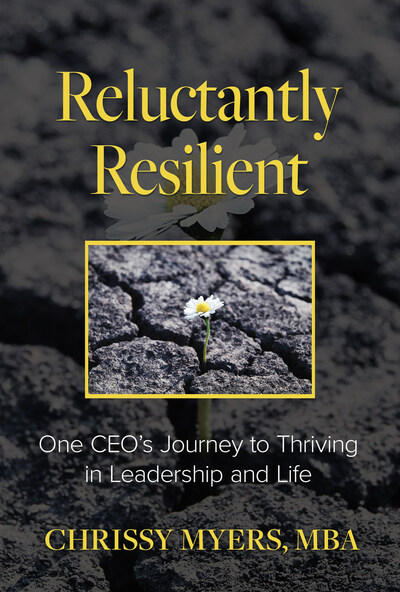When it comes to a business transition, most family business owners “fly by the seat of their pants.”
That’s the view of family business expert Chrissy Myers, author of the book Reluctantly Resilient: One CEO’s Journey to Thriving in Leadership and Life (2023, Gravitas Press).

A leader at her family’s insurance agency, Myers thought she knew the answers to business and life. That is, until the Affordable Care Act shook the very foundation of the business. In the tailspin of activity just before ACA went live, Myers unexpectedly lost her husband. Suddenly, she was a single mom with two kids under six, steering a business with an uncertain future.
Myers candidly shares her struggles as a business leader in a market upheaval, the challenges common in a family business and the stress she experienced as a widow and mom dating and building a healthy family.
“We question our decision to work with Mom and Dad and wonder why everyone else makes it look so easy,” says Myers. “We are all feeling the same way, hoping no one else notices what a struggle we are enduring.”
Although she has been through a complete transition herself, Myers notes, “I can’t offer a step-by step guide to transition your family business, but I recommend the following based on what I learned in the process:
Go to therapy for yourself. Family business transition is difficult and requires skills of emotional intelligence. Counseling provides a space where you can safely identify where past grievances and your emotional needs have become roadblocks and even self-sabotage. It’s also a space to level up your skills in communicating your needs while acknowledging the needs of others, responding rather than reacting, and balancing your work with your other priorities.
Engage a lawyer and an accountant you trust. Before calling around or asking for referrals, prepare a list of the qualifications and qualities you need in these two key roles. Take your time interviewing and finding the right fit for you. You will likely continue to work with these professionals after the transition and for years to come. Comfort with how these professionals communicate with you can be just as important as their skill sets.
Take no hostages. If you have a spouse or significant other, children, or close friends who will be with you on your ownership journey, get their buy-in and support early in the process. Following the emotional and high-stress days as you navigate the transition, there will be difficult days ahead when the business is yours. Getting through the transition is the first, not the final, step. Take time to create a framework of how work and life will fit together. This is key to ensuring you continue to be happy with your decision over the long haul. Be intentional in the time you spend with your family, and try not to talk about the transition all the time. I know it’s hard.

Take care of yourself. The way you care for yourself during the transition creates the pattern of how you care for yourself as a business owner. Discipline yourself to eat well, exercise, and get enough sleep. Make time to do enjoyable things, ones that give you energy, because you are going to need it.
Establish a limit. You must have a threshold at which you are willing to walk away regardless of where you are in the process. My own limit came two months after my mom had retired without a completed agreement.”
Myers is known for her resilience in transitioning her family business, Associated Underwriters Insurance (AUI), through the changes necessitated by the Affordable Care Act, COVID-19 and numerous personal tragedies and changes within her family. She is the CEO of AUI and Clarity HR, which serve small and medium-sized businesses in for-profit and nonprofit sectors in the areas of HR and employee benefits. She serves on numerous boards of directors and is a tireless advocate for families struggling with addiction and mental health issues.
